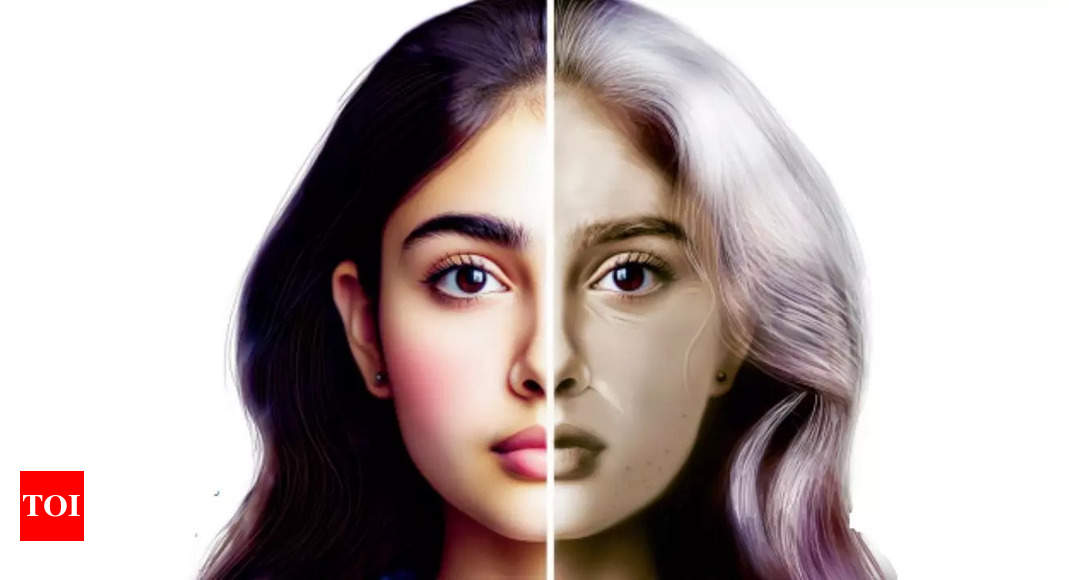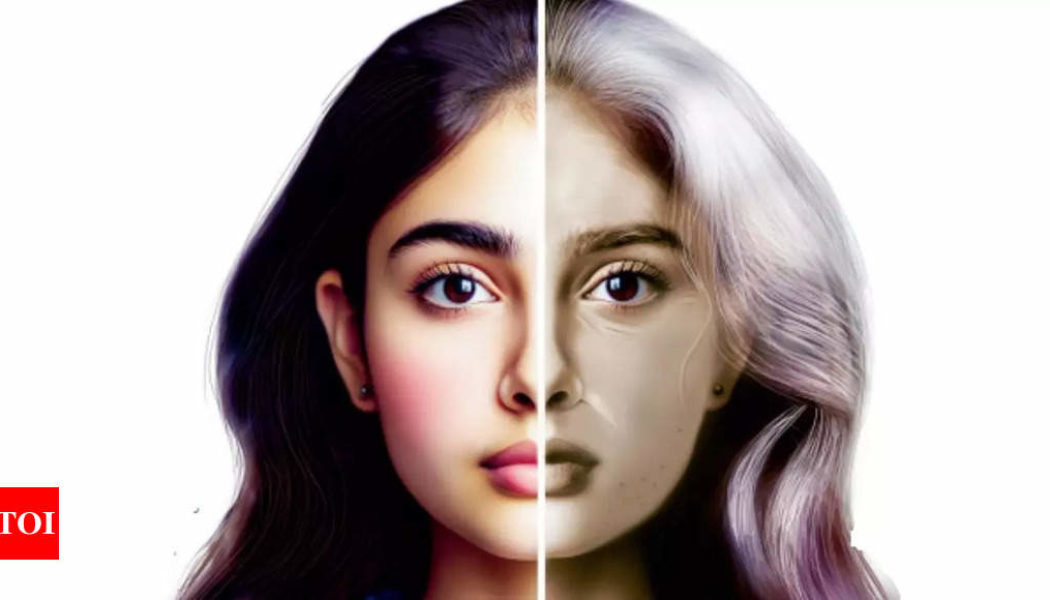
It has been a couple of months since Reshma Subburaj, a 19-year-old architecture student, had a good night’s sleep. Leaving her tossing and turning all night are “stress and deadlines”. She feels tired all the time but is determined to get her submissions in on time. Like Reshma, many from Gen Z (aged 12-27) have erratic lifestyles and poor eating habits and experience intense stress, eventually causing them to “age faster than milk” as social media calls it.
Teens as young as 13 and 14 are experiencing premature balding, greying, wrinkles, etc. While genetics and health conditions are factors, the primary cause is stress,” says Dr Bhuvanashree N, a dermatologist at Buvvis Dermagicalz. “Teens are becoming conscious about their looks and are availing treatments for premature aging.” “I tried several natural remedies to prevent hair thinning on the crown. I used onion oil, rosemary oil, hibiscus oil, and compressed coconut oil. But none of it worked and that’s when I decided to consult a dermatologist. I was given Vitamin B12 injections directly into my scalp to promote hair growth. It has helped me drastically and I’m working on my diet to get these vitamins through my food,” says 21-year-old Mahima A, whose condition was found to be caused purely by stress. Several young adults also go in for botox injections for crow’s feet and fine lines.
The reasons for the high levels of stress in teens and young adults are many, ranging from increased competition to high expectations from self and others. “My college faculty try to make the environment as stress-free as possible, but I’m unconsciously burdening myself with high expectations. I struggle to achieve them because I want my work to be the best and don’t want to let people down,” says Reshma, who struggles to maintain a healthy diet. “When I was in school, I would talk to my mom every evening after returning from school about my day. But now I don’t talk to her at all because I come home late from college and am exhausted by the time I reach. That is stressing me out even more,” she says. In most cases, it is the high standards set by society that stress them out, says Sarathi, a 26-year-old product designer. “Despite having a well-paying job and a good position in my company, I felt the need to find a secondary income because society dictates the grind culture (that one should consistently work hard to achieve success). I would stay up all night working on my side projects and my full-time job but was miserable. Eventually, I burnt out. That’s when I realised I had to stop.”
Some of the common issues found among Gen Z are anxiety, body image issues, depression, eating disorders and addiction, says Vandhana S, a Chennai-based clinical psychologist. She agrees that there are multiple factors involved for the stress-aging cycle: biological, psychological and social. “Stress can be derived from one’s personality as well. Many individuals among Gen Z constantly worry, think and process their thoughts excessively, due to poor coping mechanisms.” These coping mechanisms, in addition to stress, lead to a disruption in the sleep cycle which prevents the body from healing from everyday wear and tear, leading to faster aging. And it’s not just about aging, Gen Z members are susceptible to a variety of health conditions including heart problems and insulin resistance, in comparison to millennials (ages 28-43) and Gen X (ages 44-59). Dr V Mohan, chairman of Dr Mohan’s Diabetes Specialities Centre, says, “The carotid is a major artery that supplies blood. With age its thickness increases.
In a healthy young adult, the carotid thickness is usually 0.4-0.6mm. However, due to improper diet including consumption of fast foods high in sodium, lack of exercise, stress and high sugar consumption, children as young as 10 are getting diagnosed with type 1 and 2 diabetes which causes a range of problems including hair loss. The carotid thickness is often found to be 0.9mm. Their bodies are aging faster than they should.” How can the young help themselves? “The biological clock needs to be regulated, firstly. Fixing your sleep cycle is important to cure physical issues and improve neuro-psychological functions. Exercising within limits and avoiding external supplements which harm the liver will also help. Indulge in a hobby that lets you unwind and relax. Take things one thing at a time. You don’t have to rush and you have all the time in the world,” says Vandhana.









